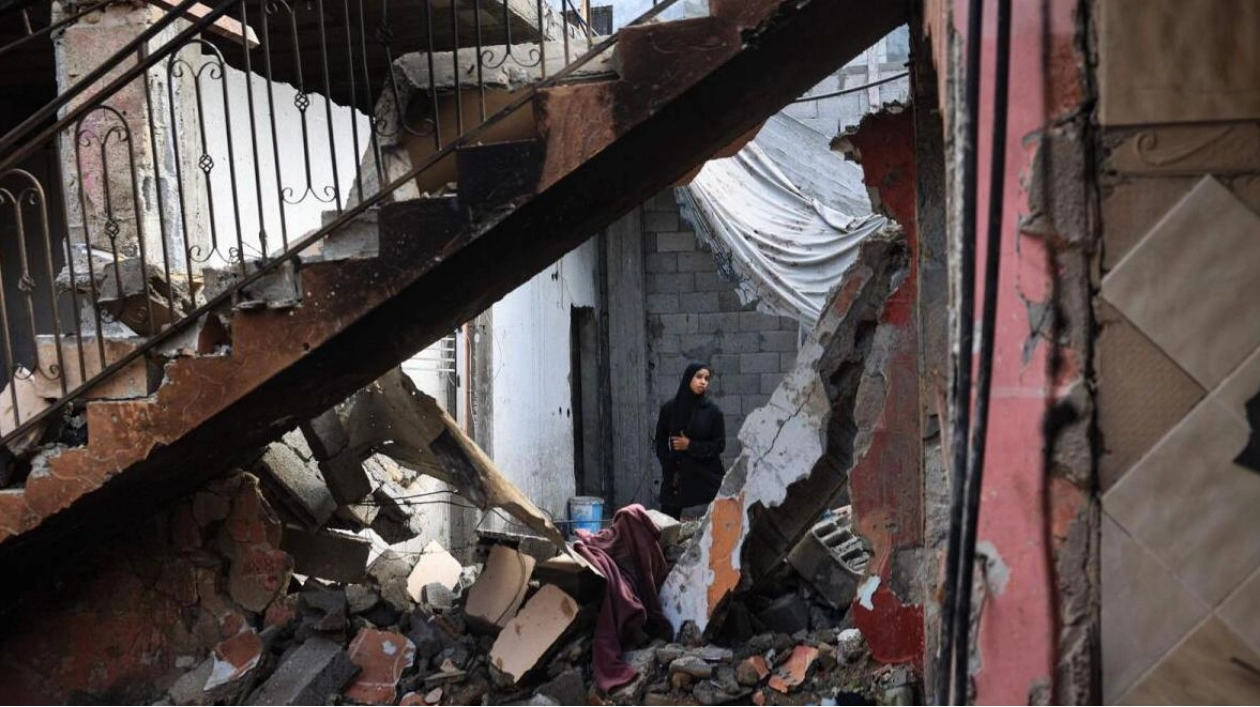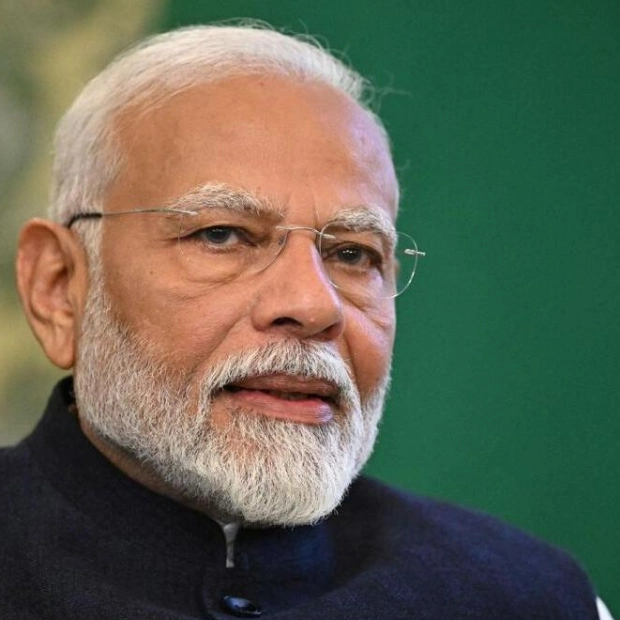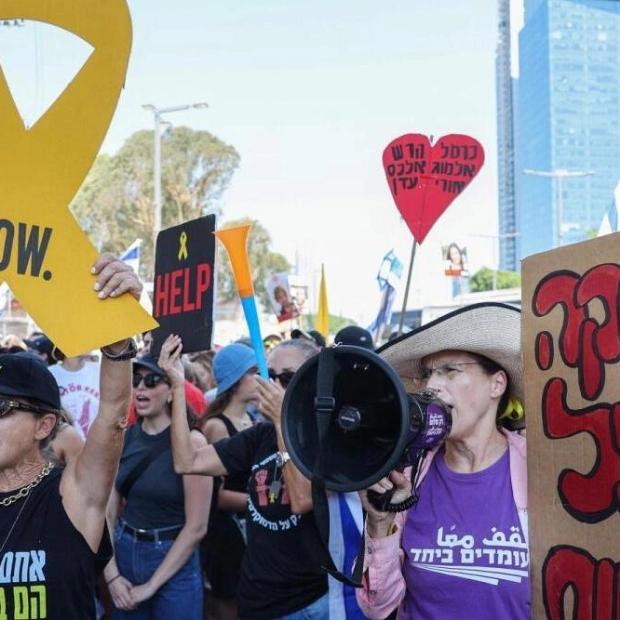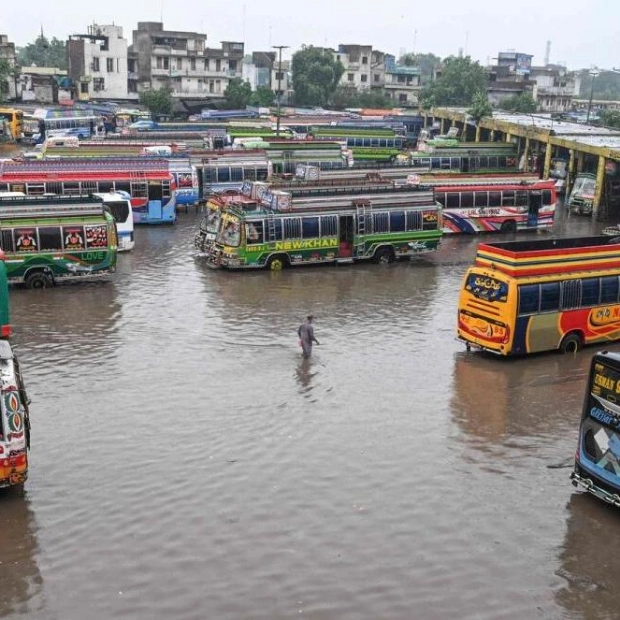Israel intensified its strikes on the southern and central Gaza Strip on Monday, aiming to increase pressure on Hamas, following a weekend attack that targeted the militant group's leadership and resulted in the deaths of numerous Palestinians who had taken refuge in a makeshift camp. Two days after the Israeli strike transformed a densely populated area near the Mediterranean coast into a devastated landscape with burning vehicles and mutilated bodies, displaced survivors expressed their uncertainty about their next steps. "Those moments when the ground trembled beneath my feet, and I saw dismembered bodies amidst the rising dust and sand—it was unlike anything I've ever experienced," recounted Aya Mohammad, a 30-year-old market seller in Mawasi, via a mobile text message. "Everyone is asking where to go, but no one has an answer."
Mawasi, located on the western outskirts of Khan Younis, has been providing shelter to hundreds of thousands of Palestinians who fled there after Israel designated it a safe zone. Israel claimed its strike on Saturday was aimed at Hamas's military commander, Mohammed Deif, who played a key role in the October 7 attack on Israeli towns and villages that escalated the conflict in Gaza. The military asserted that the strike targeted an open area with several buildings and sheds, stating it was a Hamas-run compound, not a tented camp. Palestinian officials reported that at least 90 people were killed and hundreds more injured. Reuters journalists captured footage of the aftermath, showing residents carrying the wounded and dead through flames and smoke.
Further south in Rafah, the focal point of Israel's operations since May, residents reported renewed hostilities on Monday. Israeli forces reportedly destroyed several homes in western and central parts of the city. Medical officials recovered 10 bodies of Palestinians killed by Israeli fire in eastern areas of the city, some of which were already decomposing. The military also intensified aerial and tank shelling in central Gaza, particularly in the historic refugee camps of Al Bureij and Al Maghazi. Health officials confirmed that five Palestinians were killed in an Israeli air strike on a house in Maghazi camp.
The Israeli military announced that its air forces had targeted dozens of Palestinian military installations across Gaza, resulting in the deaths of numerous gunmen. Forces reportedly engaged in close combat, killing gunmen in Rafah and central Gaza. The Al Quds brigade, the armed wing of the Islamic Jihad militant group, declared that its fighters were involved in intense battles in the Yabna camp in Rafah. Later on Monday, in Deir Al Balah in the central Gaza Strip, where Israel has not yet launched an invasion, the municipality issued an urgent statement indicating it could no longer supply drinking water to 700,000 residents due to a fuel shortage. "We urge citizens to conserve water in their private tankers and emphasize the importance of cooperation and sharing," the statement read.
In the midst of the ruins of his family home in Deir Al Balah, Walid Thabet described how an Israeli strike earlier on Monday had claimed the lives of his family members. Rescue workers and neighbors searched through the debris for survivors buried beneath the collapsed building. "My mother, an elderly woman, was with me upstairs. She went downstairs, and within five minutes, I pulled her out from under the rubble. We also rescued my sister and her children," Thabet said. "Those who died were my mother, my sister, and her children. Children! One was two and a half years old, and the other two, I don't know their fate. Hopefully, God will protect them," he added.
The devastating strike in Mawasi, one of the deadliest in the conflict, has overshadowed ongoing negotiations that both sides had previously considered close to achieving a lasting ceasefire. A senior Hamas official stated on Sunday that the group had not withdrawn from the talks despite the Mawasi strike. Israel claims another senior commander was killed in the strike but has not confirmed the fate of Deif, whose death Hamas officials deny. The Gaza health ministry reports that at least 38,000 Palestinians have been killed since Israel's military offensive began on October 7, with most of the casualties being civilians. Israel has lost 326 soldiers in Gaza, and estimates that at least a third of the Palestinian fatalities are fighters. The conflict erupted following a Hamas-led attack on October 7, which resulted in the deaths of 1,200 people, mostly civilians, and the capture of over 250 hostages by militants.
Citing a report by the United Nations Environment Programme, the UN Palestinian refugee agency UNRWA stated on X that it would take 15 years to clear approximately 40 million tonnes of war debris in Gaza. The cleanup effort would require over 100 trucks and an estimated cost of more than $500 million. "Debris poses a lethal threat to people in the #GazaStrip as it may contain unexploded ordnance and harmful substances," the agency added.






